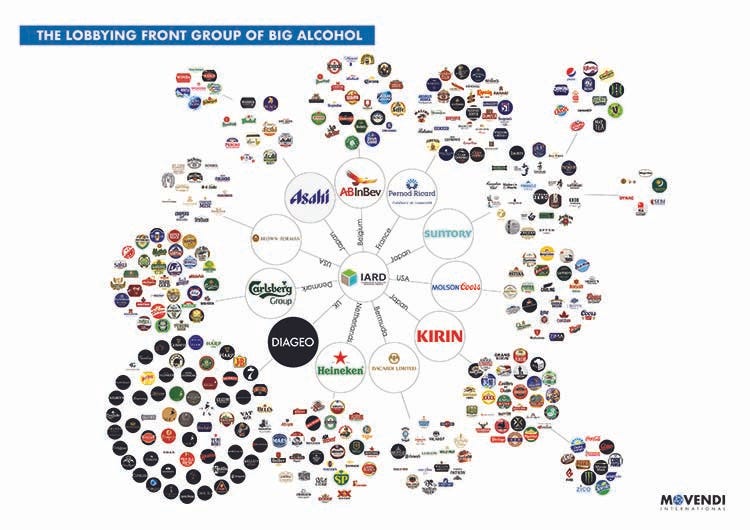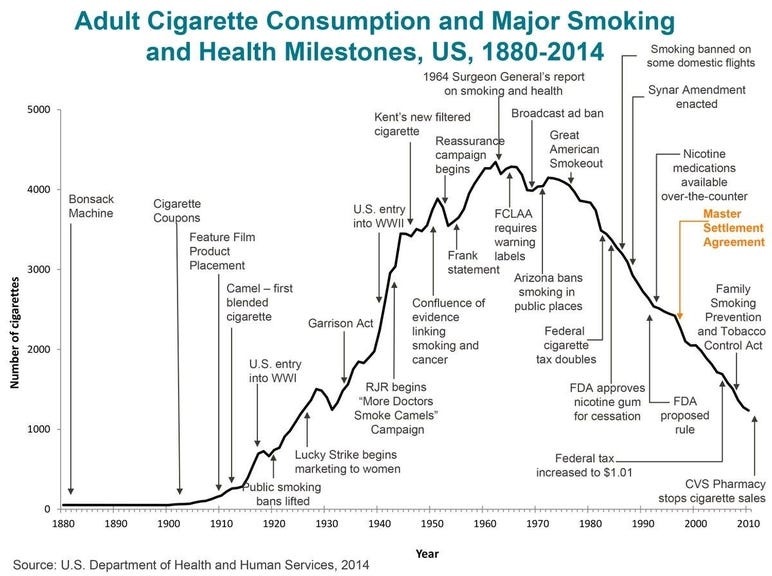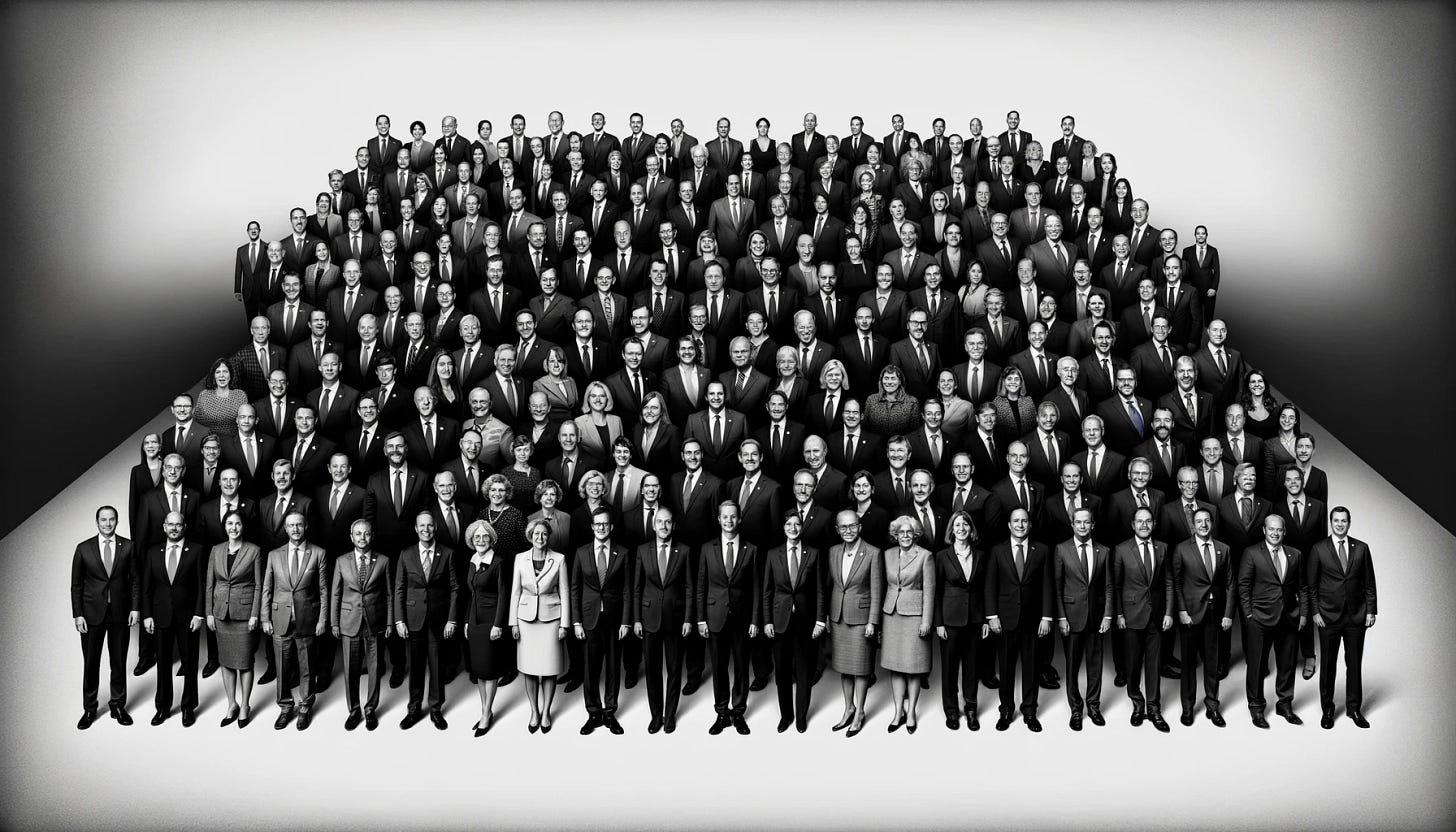TGIF :: The U.S. Alcohol Policy Alliance
#50 || Update from the front lines after attending a fundraising luncheon in NY
ClearLife journeys, or explorations of life without dimmers, is deeply personal. Yet, the policies of our nations, states, and communities influence consumption, behavior and social norms—and us—in countless ways. This week I depart from my more intimate, personal tone to share an update on domestic alcohol policy reform efforts of the USAPA to reduce the harmful use of alcohol in the U.S. and beyond.

First, some facts
178,000 people in the U.S. alone die of alcohol-related harms a year. It is a causal factor in >200 diseases including seven deadly cancers. 13.5% of total deaths between ages 20-39 are attributable to alcohol.
Anheuser-Busch spends ~$7B a year in advertising, heavily targeting youth.1 Advertising spend is linked to higher consumption rates.
U.S. warning labels for alcoholic beverages haven’t been updated for more than thirty years, predating the recognition of alcohol as a group 1 carcinogen.
Alcohol tax policies are similarly outdated at the state and federal level. Higher taxes support reduced consumption rates.
Like Big Tobacco did for decades, Big Alcohol actively obstructs public awareness, heavily investing in opposing effective alcohol policies at the expense of public health.
This all will change, but we have a long way to go.
What’s the USAPA?
The U.S. Alcohol Policy Alliance is a nonprofit, nonpartisan organization translating alcohol policy research into public health practice. The organization is committed to ensuring that local and statewide organizations engaging in alcohol policy initiatives have access to the science, resources and technical assistance, including support for organizing efforts, required to engage in informed decisions and actions in translating alcohol policy research into public health practice.2
Here is a ~3 minute video that captures what they’re up to, and why (copy link in upper corner to watch it).
What do they do?
The USAPA’s efforts to date have including amicus briefs for the Supreme Court, the co-authoring of national policy statements, many years of meetings and national conference gatherings, and the submission of a Citizen Petition to the U.S. Treasury Department’s Alcohol and Tobacco Tax and Trade Bureau calling for revisions to the more than 30-year-old Government Warning on alcoholic labels (required by The Alcoholic Beverage Labeling Act of 1988).
“Specifically, the Petition requested the label be amended to state that the consumption of alcoholic beverages has been known to cause specific types of cancer, including breast and colon cancer.”
This action was the subject of several news reports, including Should Your Cocktail Carry a Cancer Warning? published in The New York Times.
As far as I know, the USAPA is the only nonprofit in the United States working beyond the state level to support alcohol policy reform not on the “side” of Big Alcohol.
WHO “best buys”
The USAPA is focused on policy with priorities informed by The World Health Organization (“WHO”) that has identified three primary actions to reduce the harmful use of alcohol (similar to what was done to curtail harms stemming from Big Tobacco):
increase taxes on alcoholic beverages,
enact and enforce bans or comprehensive restrictions on exposure to alcohol advertising across multiple types of media, and
enact and enforce restrictions on the availability of retailed alcohol.
These efforts are working in other countries around the world. It’s time for the U.S. to catch up.
We’re lagging
In the U.S. we are following the Big Tobacco footsteps in raising awareness around the risks of unhealthy alcohol use, policy reform, and resourcing change. However, we are trailing behind other countries and decades behind tobacco awareness.
See that note at the top of the peak? The “1964 Surgeon General’s Report on smoking and health?” My prediction is that decades down the road, we’ll look at 2024 as a similar moment, a peak in national alcohol consumption, right around the time the World Health Organization declared there is no “safe” level of alcohol consumption with Canada following with a similar report3 (both last year).
The World Health Organization (WHO) on Jan. 4, 2023, released a statement that there is no "safe" level of alcohol consumption that does not affect health. . . . In 2023, Canada radically revised its recommendations for alcohol consumption when it published new national recommendations saying that zero alcohol is the only risk-free approach.4
It’s disappointing that we’re moving slowly, yet not surprising. The obstacles are enormous. There are currently 279 known Big Alcohol lobbyists in Washington D.C., that’s one for every two congresspeople. You know how many exist on the side of advancing alcohol awareness for public health? Zero.
Near term goals
A near-term goal of the USAPA is to raise a modest $100k in the next 90 days to fund advocacy and policy support at the national level. The hope is that with recent increase in public awareness regarding the risks of alcohol, we’ll see a snowball effect—more resources and eventually, less harm.
I’ve done my diligence. This is a healthy organization run by very good people. If you are inspired, you can donate here (top right corner will take you to PayPal).
Predictions
If you look at the history of Big Tobacco as a playbook, we are on our way, but it is a slow start. My informed guess as to what’s coming in the next 5-10 years:
More accurate warning labels, much like what Ireland recently mandated, possibly spearheaded by California (the state that first followed Ireland’s indoor smoking ban in the 1990s).
A broadcast and billboard ad ban, following in the footsteps of France, Norway, Russia, Ukraine, Myanmar, Sri Lanka, Kenya and Kazakhstan.5 No more alcohol ads during the Super Bowl, please… we were up to almost $100m in spend for 361 seconds of (eight) alcohol ads in 2023 alone.
An increase in taxes (see a fantastic NYT video story on this here).
A wave of state AG-led litigation revealing criminal, obstructionist wrongdoing on the part of Big Alcohol to maximize profits at the expense of public health.
Eventually, a multi-billion dollar settlement (Big Tobacco’s was $365 billion) that can be used in part to recoup state costs and fund go-forward education and awareness campaigns.
I genuinely believe all of these things will happen. The question is how long it will take. The effort requires resources and so far, that’s been very, very slow going. I’m hopeful that we can change that. If you have ideas or suggestions for funding sources, please reach out.
Why I care
I love what they are doing and I want to help, perhaps because I live in the center of a Venn Diagram: (1) I lost my mother far too young (just 64) to an alcohol-related cancer, (2) I’m an attorney with some fiery energy for this topic, (3) I myself, after years of “social” drinking weathered breast cancer last year (5+ years after pausing alcohol), and (4) until recently, I was among the 68% of Americans who didn’t know about the link between alcohol and seven deadly cancers (including breast).6
When I was spared a broad metastasis in early 2023, I made a deal with the Universe that I’d help raise awareness around some of the health risks associated with alcohol. USAPA is the only organization I’ve found, working at this level, willing to take on this challenge—and they need help.
A parting thought… Why doesn’t the medical profession play a role?
I asked the speaker, Dr. David Jernigan this after his talk at the event. How is it that throughout cancer treatments, patients are asked about tobacco, birth control, hormone replacement therapy, household toxins, and countless other risk factors, but rarely, if ever, about alcohol use? His answer: Doctors drink too. In addition to government policy, perhaps we can be raising awareness in medical circles as well. If you have influence in these areas, it’s high time we added inquiries around alcohol use, past or present, to risk factor review in preventative cancer care.
Thank you & deep bow…
…to the many people who are doing this work. I am grateful for your warm hosting, evident dedication, and energy to potentially collaborate, especially Mike, Alicia, Steve, Tucker, and others I won’t yet name. It feels like a beginning of sorts.
Onward. 💪🏼
Miscellaneous…
Other posts… that may be of interest if you like the flavor of this one: It’s High Time We Update Alcohol Labeling, Are We Being Duped?, Yep, NoLo (No & Low Alcohol) is IN, Let's Dismantle the Stigma Around Not Drinking Already, and Addiction & Choice. ℹ️
ClearLife Upgrade… Next week I’ll share the new logo and branding with some Q&A from the masterminds who created it after hours of explorations, tinkering, and creative refining. The timing is perfect with several new initiatives coming soon. 💥
Who’s Coming to Wisdom 2.0 April 24-26 in San Francisco? I will be there holding space with none other than Roshi Joan Halifax and sharing an update on Wisdom Ventures. Hope to see you. 💗
Sangha Saturdays… The next Zoom version will be Saturday April 13th at 9am PT. The next in-person one has yet to be scheduled (April is a busy month with travel, Wisdom 2.0, and two kids on three baseball teams!). If you’d like to join, please indicate your interest here and you’ll be added to the (anonymous) calendar invitations. 🎋
https://www.ncbi.nlm.nih.gov/books/NBK37586/
https://www.alcoholpolicy.org/about-us
https://www.ccsa.ca/sites/default/files/2023-01/CCSA_Canadas_Guidance_on_Alcohol_and_Health_Final_Report_en.pdf
https://www.jdsupra.com/legalnews/alcohol-consumption-guidelines-a-4705442/
https://en.wikipedia.org/wiki/Alcohol_advertising#:~:text=Some%20countries%2C%20such%20as%20France,advertising%20on%20television%20and%20billboard.
https://www.aacr.org/about-the-aacr/newsroom/news-releases/few-americans-are-aware-of-links-between-alcohol-and-cancer-risk/








